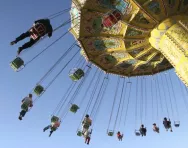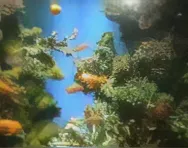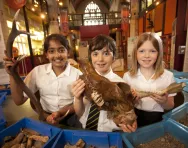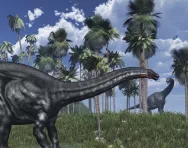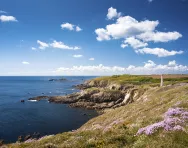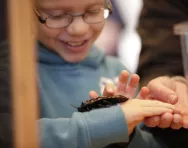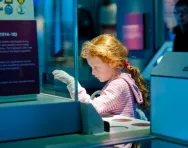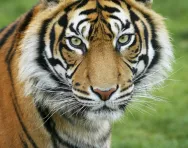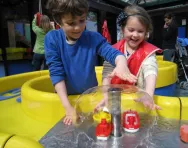Important update from TheSchoolRun
For the past 13 years, TheSchoolRun has been run by a small team of mums working from home, dedicated to providing quality educational resources to primary school parents. Unfortunately, rising supplier costs and falling revenue have made it impossible for us to continue operating, and we’ve had to make the difficult decision to close. The good news: We’ve arranged for another educational provider to take over many of our resources. These will be hosted on a new portal, where the content will be updated and expanded to support your child’s learning.
What this means for subscribers:
- Your subscription is still active, and for now, you can keep using the website as normal — just log in with your usual details to access all our articles and resources*.
- In a few months, all resources will move to the new portal. You’ll continue to have access there until your subscription ends. We’ll send you full details nearer the time.
- As a thank you for your support, we’ll also be sending you 16 primary school eBooks (worth £108.84) to download and keep.
A few changes to be aware of:
- The Learning Journey weekly email has ended, but your child’s plan will still be updated on your dashboard each Monday. Just log in to see the recommended worksheets.
- The 11+ weekly emails have now ended. We sent you all the remaining emails in the series at the end of March — please check your inbox (and spam folder) if you haven’t seen them. You can also follow the full programme here: 11+ Learning Journey.
If you have any questions, please contact us at [email protected]. Thank you for being part of our journey it’s been a privilege to support your family’s learning.
*If you need to reset your password, it will still work as usual. Please check your spam folder if the reset email doesn’t appear in your inbox.
Museums reviewed by parents: SEA LIFE Brighton
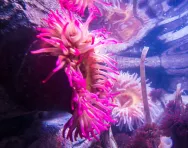
Elena Dalrymple took her children Tom and Emily (aged 4 and 8) to SEA LIFE in Brighton.
Located right on the beach on Marine Parade in the centre of Brighton, SEA LIFE is a hugely popular seafront attraction. The world's oldest operating aquarium offers everything from 'traditional' tank-watching in the Victorian arcade to hands-on rockpool exploration and new, interactive digital displays in the Jurassic Seas exhibition.
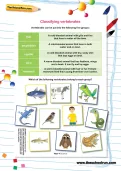
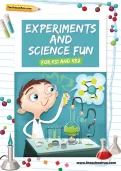
Download fantastic science resources today!
- Experiments And Science Fun pack
- Science Learning Programme for each school year
- All the instructions, questions and information you need

Best for nursery and Reception kids
Little ones might be a little overwhelmed by the scale of what's on offer, but getting to touch a crab or a starfish in the rockpool is very memorable! My daughter was also fascinated by the rays in the ray pool and loved standing right up next to the tank to look at their faces, and mesmerised by the turtles and sharks swimming above her in the Ocean Tunnel (expect to spend a long time standing in the tunnel looking up... and to enjoy every minute!).
Best for KS1 kids
The free Dive Log Book you receive as you enter SEA LIFE is a great way to organise your visit: look for stamping machines as you walk around and collect all the stamps to receive a reward, as well as learning plenty of marine facts and figures.
Also popular is the Rainforest Adventure section of the aquarium, complete with 'mangrove roots' entry for kids. The terrapins are wonderful to watch, and kids are always interested in super-scary creatures (in this case poison-dart frogs and piranhas).

Best for KS2 kids
The new Jurassic Seas exhibition was a huge hit with my eight year old (digital dinosaurs you can interact with? Which way?). Motion-sensor technology brings aquatic creatures of the past 'back to life' on huge screens, so you can 'feed' a Plesiosaurus, examine a Megalodon's giant teeth and test your bravery in the face of an angry Liopleurodon.

Equally impressive (to parents, anyway!) are the array of live creatures that have survived for millions of years; you can see a Giant Nautilus, some lively Mudskippers and the weird but wonderful Horseshoe Crabs.
Don't miss!
There are loads of feed-time shows to attend throughout the day. SEA LIFE entry tickets are valid for the whole day, so you can nip out for lunch and come back to watch the turtles or sharks eating theirs, or head to the seahorse tanks or the ray pool to understand more about different creatures and their habits.
Available for an extra fee are tickets to a Behind the Scenes Tour which explains how filtration and water quality systems work, how food is prepared for the animals and gives guided access to breeding and research areas and a ride on a Glass-Bottomed Boat, for a snorkeller's view of the turtles and sharks in the Ocean Tank.
Food and drink options
There's a cafe serving hot and cold drinks, snacks, sandwiches and cakes inside the SEA LIFE complex, or head out to the beach for fish and chips and then return to finish your visit after some fresh air.
Getting there, prices and opening hours
SEA LIFE Brighton is right next to Brighton Pier, with lots of public transport options available. The closest car park, NCP, is under the Thistle Hotel, a short walk from the entrance.
Open from 10am - 5pm daily (10am - 6pm during school holidays). Last admission is 1 hour before closing time. Closed on Christmas Day.
Tickets start at £17.50 per person (under 3s are free) on the door, with savings of up to 30% available online.

Pocket-money shop purchases
The on-site shop sells a large selection of gifts. We loved the fossilised shark teeth (£2.50) and ammonites (£2.60).
Online treasures if you're too far to visit
A guide to the marine creatures in the aquarium is available online and offers basic facts and images.
Links to the National Curriculum
Learning about sea life, vulnerable species and the evolution of marine creatures is part of science and geography lessons in primary school.
- Dinosaurs (KS1)
- Marine habitats (KS2)
- Conservation and adaptation (KS2)
- Science investigations: the natural world (KS2)


Photography: © Julia Claxton
Museum reviews for parents: we need YOUR help!
TheSchoolRun is looking for families to visit museums and other educational venues around the country and 'review' them. Get in touch to have your say about the best family days out (with a learning twist!).
